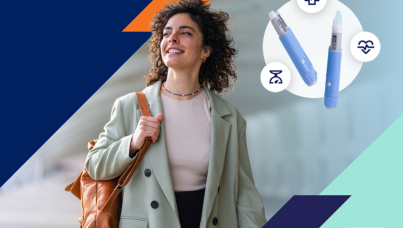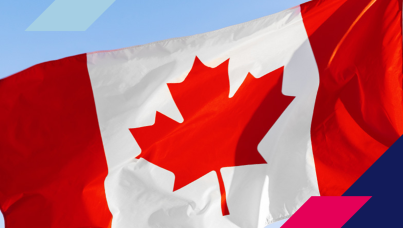Nearly 60% of those surveyed in the Global South have experienced some form of online harm – almost 25% of them felt they were targeted because of their gender identity
Ipsos in Canada, on behalf of the Centre for International Governance Innovation (CIGI), conducted a quantitative research survey to understand people’s experiences online and the incidence of online harm and gender-based violence with a specific focus on countries in the Global South. The survey was designed to understand the perceptions of the harmfulness of specific online behaviours, their incidence, the impact on people’s lives as well as the actions they take following an incidence of harm. More than 18,000 people of all genders, across 18 countries (primarily focused on the Global South) were interviewed using a mix of online and offline survey methods.
The survey results highlight the pervasiveness of online harms, which are forms of tech-facilitated violence (TFV) and can range from coercion and harassment to violation of privacy to sexual threats and non-consensual distribution of intimate images. The data shines a light on not just the extensiveness of online harms, but also on the severity of its impact, on the individual as well as on society with ramifications on freedom in the digital world, leading to digital exclusion.
The findings call on governments, technology companies, civil society organizations, researchers, academicians and think tanks to work together to address and eliminate tech-facilitated violence.
Key survey findings include:
- 59% of all respondents interviewed have experienced some form of online harm
- Being repeatedly contacted by an unwanted someone and being the recipient of unwanted sexual images are the two most common forms of online harm.
- Most often, the incident was an isolated case that occurred once (39%) or a few times (40%). However, 11% of victims were subjected to ongoing and recurring harassment as frequently as monthly (5%), weekly (3%) or daily (3%).
- While the perpetrator is more often a stranger or someone under disguise (64%), it is also very often someone very close (a friend, an ex/current-intimate partner/family member, 32%), or someone known (co-worker/colleague etc., 21%).
- 25% of those who experienced some form of online harm felt that they were targeted because of their gender identity
- More than half (53%) of transgender, gender-diverse and non-heterosexual respondents who experienced online harm reported a severe negative impact on their mental health and 38% also felt that their desire to live was impacted.
- Approximately 40% of the victims have not reached out to anyone, be it in their personal circles or a support organization. 1 in 4 sought support from their friends, followed by family. Only 10% or fewer victims took further action such as reporting to the police or even the platform.
To read the report and access individual country results from the survey, please visit cigionline.org/activities/supporting-safer-internet
About the Study
These are some of the findings of an Ipsos research conducted on behalf of the Centre for International Governance Innovation (CIGI).
The survey was conducted in 18 countries across 4 different regions: Algeria, Argentina, Brazil, Canada, Chile, China, Ecuador, France, Germany, India, Jordon, Kenya, Saudi Arabia, South Africa, Tunisia, United Arab Emirates and the United States. While the focus was Global South, a few selected Northern countries were included as comparators.
The survey was targeted toward the general population in each country, aged 18-74 in Canada and the USA, and aged 16-74 in all other countries. In total, 18,149 interviews were conducted wherein each country’s sample consists of 1,000+ individuals. Quotas and weighting were applied by age, gender, and region so that each country’s sample composition best reflects the demographic profile of the target age according to the most recent census data.[1]
The research consisted of a mixed-methodology approach wherein the online survey was supplemented by offline interviews in selected countries. In countries where Internet penetration was limited or based on limitations of online panel coverage, offline interviews (face-to-face or telephonic) were also conducted to ensure the inclusion of respondents that may have been underrepresented or excluded online. In this light, fieldwork in Brazil, India, South Africa, Tunisia, Kenya, Algeria and Colombia had an offline interviewing component, in addition to the online fieldwork.
The accuracy of Ipsos online surveys is measured using a credibility interval, a measure similar to a margin of error. A survey of 1,000 interviews is considered accurate to +/- 3.5 percentage points, 19 times out of 20, of what the results would have been had all people in the country in the target age range been surveyed. Smaller subsets of the population will have larger credibility intervals. For more information on Ipsos’s use of credibility intervals, please visit the Ipsos website.
The fieldwork was conducted between June 25-Sept 2, 2021[2]
The survey instrument was designed in consultation with the project steering committee, consisting of subject matter experts from and/or partnering with CIGI/IDRC. Ipsos’ global and regional experts also contributed from the point of view of both regional nuances, as well as operational feasibility. Pilot interviews were conducted in each country (n=30 in each country for each mode of interview) and based on the feedback, further adjustments were made to the content, flow, as well as administration (instructions/descriptions etc.).
The survey was developed in English and conducted in-language in each country.
The online survey averaged approximately 15 minutes in length while the offline versions (face-to-face and telephone) averaged ~30-35 minutes in length.
Reporting Conventions and Considerations:
The term “LGBT+” has been used throughout this work, where “+” stands for each country’s unique traditions, norms, and definitions. The survey asked three separate questions on cisgender, sexual orientation, and gender identity. For simplification and in order to study the data on a quantifiable sample, “LGBT+” is defined as those who selected “A gender other than the one I was assigned at birth ("transgender")” at cisgender OR “Another gender identity” at gender identity OR “Gay/Lesbian/Another Sexual Orientation” at Sexual Orientation.
Sample sizes for LGBT+ per country are low and range from n=30 to 136. For India, South Africa and Kenya, n<40.[3] However, based on the objectives of the research and therefore the importance of analyzing the results separately for LGBT+ respondents, data is presented for directional purposes and should be interpreted with caution.
Some questions were not asked in certain countries due to the sensitive nature of the subject matter.[4] Based on cultural, legal and political sensitivities, several country/region-specific adaptations were made to the survey content. For example, questions on sexual orientation or cisgender/transgender were not asked in the Middle East. A full list of country/region-specific adaptations can be provided upon request.
Where results do not add to 100%, it is due to rounding or the question would have allowed the selection of multiple responses.
It is important to note that Ipsos follows a “no-harm” approach in surveying. Given the sensitive nature of the topic and in recognition of the fact that some of the questions, especially on personal experiences, could be triggering, all respondents were:
- Informed about the topic and the objectives of the survey and asked for their explicit consent to participate before the start of the survey
- Informed up front that all questions are voluntary and an option of ‘prefer not to answer’ was available in each question, and could be selected if the topic was uncomfortable or if the respondent did not want to answer for any other reasons
- Provided a list of local resources and helplines if they wished to seek support
The survey questions included options of ‘don’t know’ or ‘prefer not to answer’ as valid response options that respondents could select if they did not wish to answer a particular question or did not feel they had enough information to share an opinion on the topic.
The data and analysis presented in the report do not exclude these cases and include a proportion of respondents who selected these options of ‘don’t know’ or ‘prefer not to answer’. This proportion varies for each question and each country and may be representative of a ‘response style’ unique to each country and culture.
Please note that if the proportion of those who selected ‘don’t know’ or ‘prefer not to answer’ is excluded from the data, the analysis and interpretation may change and will differ from what is presented in this report.
[1] Except Algeria and Ecuador, where quotas and weights were based on age and gender.
[2] In several countries, the fieldwork period coincided with COVID-19 lockdowns, and therefore, the fieldwork duration was impacted including delayed launch and or/pausing fieldwork intermittently.
[3] Due to lower base size for LGBT+ group, differences may not test as statistically significant
[4] For example, the term “sexual orientation” was not shown in Algeria, Jordan, Saudi Arabia, Tunisia, and the UAE.
For more information on this news release, please contact:
Sanyam Sethi
Vice President, Ipsos Public Affairs
[email protected]
Sean Simpson
Senior Vice President, Ipsos Public Affairs
[email protected]
About Ipsos
Ipsos is the world’s third largest market research company, present in 90 markets and employing more than 18,000 people.
Our passionately curious research professionals, analysts and scientists have built unique multi-specialist capabilities that provide true understanding and powerful insights into the actions, opinions and motivations of citizens, consumers, patients, customers or employees. We serve more than 5000 clients across the world with 75 business solutions.
Founded in France in 1975, Ipsos is listed on the Euronext Paris since July 1st, 1999. The company is part of the SBF 120 and the Mid-60 index and is eligible for the Deferred Settlement Service (SRD).
ISIN code FR0000073298, Reuters ISOS.PA, Bloomberg IPS:FP



